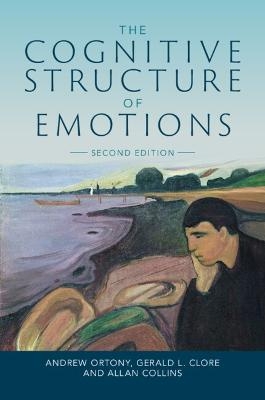
The Cognitive Structure of Emotions
Cambridge University Press (Verlag)
978-1-108-92875-5 (ISBN)
More than 30 years after its initial publication, this new edition of The Cognitive Structure of Emotions refines and updates Ortony, Clore, and Collins's OCC model of emotions. Starting from a three-way classification of construals of the world––events, the attribution of responsibility for events, and objects––the authors propose a systematic account of emotion differentiation. Rejecting the oft-favored features of bodily feelings, emotion-related behaviors, and facial expressions as too intensity-dependent and insufficiently diagnostic, they provide a detailed analysis of emotion differentiation in terms of the cognitive underpinnings of emotion types. Using numerous examples, they explain how different variables influence emotion intensity, and show how emotions can be formalized for computational purposes. Now with a contributed chapter describing the OCC model's influence, this book will interest a wide audience in cognitive, clinical, and social psychology, as well as in artificial intelligence and affective computing, and other cognitive science disciplines.
Andrew Ortony is Professor Emeritus of Psychology, Education, and Computer Science at Northwestern University. He is well-known for his work on emotions, and his research on knowledge representation and metaphor and is the author of the landmark book Metaphor and Thought. Gerald L. Clore is Professor emeritus at the University of Virginia. He is the recipient of numerous awards including the APS William James Award and the SPSP Career Contribution Award. He is a member of the American Academy of Arts & Sciences. Allan Collins is Professor Emeritus of Learning Sciences at Northwestern University. He is a member of the National Academy of Education, and a founding editor of the journal Cognitive Science. His book with Richard Halverson, Rethinking Education in the Age of Technology is in its second edition.
Preface to second edition; Preface to first edition; 1. Introduction; 2. Overview of the theory; 3. Appraisal, the value system, and primary sources of intensity; 4. Factors affecting the intensity of emotions; 5. Reactions to events: I; 6. Reactions to events: II; 7. Reactions to the actions of agents; 8. Reactions to objects; 9. Formalization of the theory and additional issues; 10. There and back again: OCC and affective computing; Appendix.
| Erscheinungsdatum | 17.08.2022 |
|---|---|
| Zusatzinfo | Worked examples or Exercises |
| Verlagsort | Cambridge |
| Sprache | englisch |
| Maße | 153 x 228 mm |
| Gewicht | 460 g |
| Themenwelt | Geisteswissenschaften ► Psychologie ► Allgemeine Psychologie |
| Geisteswissenschaften ► Psychologie ► Sozialpsychologie | |
| Geisteswissenschaften ► Psychologie ► Verhaltenstherapie | |
| ISBN-10 | 1-108-92875-7 / 1108928757 |
| ISBN-13 | 978-1-108-92875-5 / 9781108928755 |
| Zustand | Neuware |
| Informationen gemäß Produktsicherheitsverordnung (GPSR) | |
| Haben Sie eine Frage zum Produkt? |
aus dem Bereich


